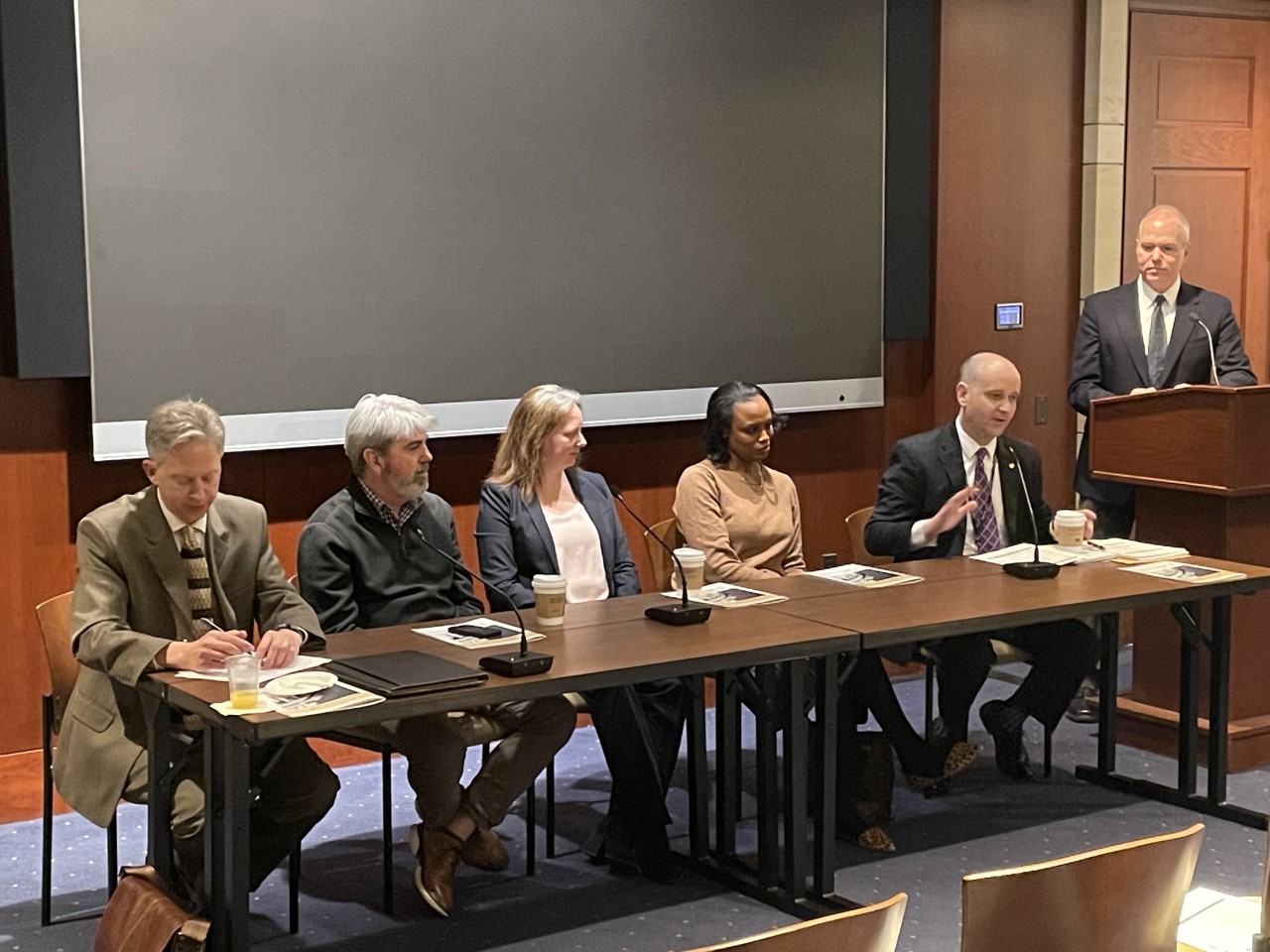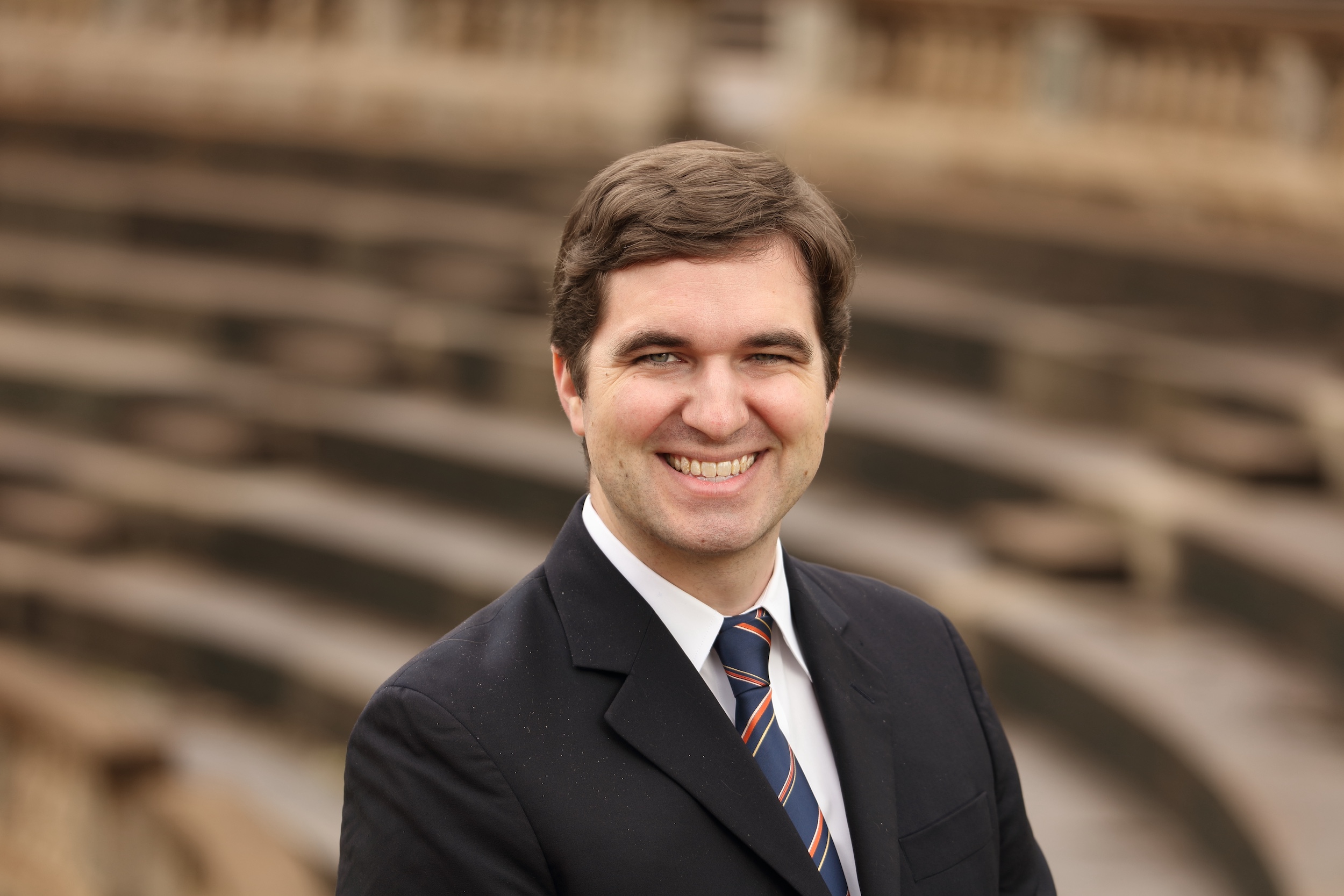Tools for Effective Lawmaking
Last Friday, the Center for Effective Lawmaking (CEL) hosted a forum for congressional staffers at the U.S. Capitol Visitor Center in Washington, D.C. titled “Tools for Effective Lawmaking.” The purpose of the event was to provide attendees with an overview of the CEL, its mission, and its research-driven best practices for effective lawmaking in Congress; and to make staffers aware of other valuable resources that they might draw on in their jobs. In addition to the CEL Co-Directors Craig Volden and Alan Wiseman (who moderated), the panel also included seasoned congressional, White House, and media veterans who provide attendees with guidance on how best to achieve their lawmaking objectives:
- Shuwanza Goff, Deputy Director of the White House Office of Legislative Affairs;
- Anne Gooch, Deputy Parliamentarian of the U.S. House of Representatives;
- Paul Kane, Senior Congressional Correspondent and Columnist at The Washington Post;
- Kevin McCumber, Deputy Clerk of the U.S. House of Representatives;
Following introductions, Professor Wiseman asked each of the panelists to provide some details about their organizations, and to identify how congressional staffers might best interact with them and/or their organizations as they sought to advance their legislative agendas. The panelists were also asked to provide some illustrations of “habits” that they have observed, on the part of members of Congress, which contribute to lawmaking success. In describing the research and engagement mission of the CEL, Professor Volden pointed to how the most effective lawmakers tend to focus their attention on a relatively limited number of policies, that they find natural allies within their caucuses and across the aisle, and that they are very entrepreneurial about identifying potential solutions to well-known policy problems (as well as other lessons that are featured in our New Member Guide which was distributed at the event). The panelists’ answers complemented the findings from the CEL by emphasizing the importance of research, communication skills, and leveraging different institutional resources and tools to advance members’ agendas. They also lamented how some elected officials seemed more interested in drawing attention to themselves and their policy views than focusing on the legislative process and/or constituency service; though they did note that drawing attention to oneself could be useful, if one does so to attract attention to a particular policy area or issue.
Following the panelists’ comments, audience members posed questions to the panel, which engaged, broadly, with how one might go about balancing expectations and needs of different stakeholders, as well as how best to interact with the media and other colleagues inside and outside of Congress. Building on Professor Volden’s aforementioned comments, several panelists spoke about the importance of becoming experts in specific policy areas; which can be accomplished by engaging with outside groups that have knowledge on such topics, as well as drawing on internal resources, such as the Congressional Research Service. Paul Kane emphasized the importance of clarifying expectations when engaging with the media (e.g., whether one is on-the-record vs. background) in order to effectively communicate one’s legislative agenda to a wider audience. The panelists also spoke about the importance of engaging with congressional committee staff, as well as working with staff from offices of members who are on the other side of the political aisle (either in Congress or the White House), since such actions are essential for establishing relations for future collaboration. Professor Wiseman concluded the session by pointing to the well-observed rapid turnover in congressional staff, and asking the panelists for their thoughts about what advice they might give to staffers who were interested in pursuing long careers in Congress. In answering this question, the panelists all spoke to how important it was to retain high quality experienced staff who possessed important institutional knowledge about Congress. They also noted that nearly all congressional staffers start out by doing relatively menial jobs, and that they should recognize that no job is too big or small for them; and that lots of opportunities will open up for those who work hard and persevere.
The CEL is grateful to the panelists and staffers who participated in the event and we look forward to being a resource to, and learning more from, them in the future.



